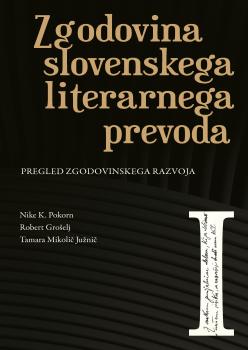The Impact of Translation on the Development of New Literary Patterns in Poetry
Synopsis
This chapter presents the translation of world poetry into Slovene in the second half of the 20th century. The development of this genre in Slovene was rapid and aligned with the expansion of literary translation. Since the 1980s on, contemporary literary criticism was accompanied by translation analysis and translation history, but the actual practice of translation was excluded from literary history overviews, since it was regarded as inferior to original production. Nevertheless, translators, often poets themselves, used translation to prove the expressive potential of Slovene, to study the norms and principles of intra-literary communication, to inform the domestic reception of poetry, and to expand the knowledge of the world poetry canon. They also attempted to understand complex foreign-language texts, transferring their characteristics and domesticating them in the target literary culture. The search for a balance between imitating the original and adapting it to the domestic patterns was especially demanding for those forms which originated in languages with different prosodic features. Two publishing houses take most credit for publishing translated poetry – Mladinska knjiga with its popular collection Knjižnica Kondor and its elite collection Lirika, and Cankarjeva založba with the collections Nobelovci and Bela krizantema. The Slovene literary horizon expanded with translations of poets from antiquity and romanticism. Since the 1960s new incentives have come from the translation of decadent poetry, neo-romanticism and symbolism, and particularly productive were translations of avant-garde and modernist poetry. Not only researchers, but also poets themselves recognised the formative impact of translated poetry and translation on the development of their own poetic expression. Their selection of and comments on their favourite translated poems suggest they did not simply submit to foreign influences, but accepted the foreign through their own creative process. The present overview confirms that translation is an important means of transfer of foreign linguistic, literary and cultural models, where foreign elements are first retained or modified in a different environment, and then ultimately accepted as a feature of the domestic system.


